TGA and PBAC Parallel Process and Requirements
Page last updated: 22 September 2021
Medicine and vaccine submissions may be made under the Therapeutics Goods Administration (TGA) and Pharmaceutical Benefits Advisory Committee (PBAC) parallel process arrangements. This enables the respective registration and reimbursement evaluation and assessment processes for Category 1 and Category 2 submissions to be undertaken in parallel.
In order to make a submission under the TGA and PBAC parallel process arrangements, the submission must meet the following criteria:
- The submission to the PBAC must be a Category 1 or Category 2 submission; and,
- A TGA registration dossier must be lodged with the TGA prior to the Category 1 and Category 2 deadline for the PBAC meeting at which PBAC consideration is sought; and,
- For submissions relating to vaccines, at the time of lodgement the submission must:
a. be accompanied by the ATAGI advice; and
b. address the matters raised in the ATAGI advice. - Must not be a medicine that has been proposed as being a biosimilar (a biosimilar medicine) to a registered reference biological medicine for which the TGA has not made a determination of biosimilarity at the time of lodgement of the submission.
Further information regarding the requirements for vaccine submissions and the provision of ATAGI advice is available on the Health website.
Submissions made under parallel processing arrangements will be subject to the following procedures:
- The publication of information that an application has been made to the PBAC will occur in accordance with the standard PBAC agenda publication process and time frames.
- Sponsors will be permitted to submit the TGA delegate’s overview up to one week prior to the PBAC meeting (at the same time the pre-PBAC responses are provided to the PBAC Secretariat).
- The PBAC will consider the submission based on the information it has before it and, as per current practice, may recommend, reject or defer the submission.
- The PBAC will generally not be able to make a positive recommendation in the absence of a positive TGA delegate’s overview because the information it contains is informative to the PBAC’s consideration. Submission of the delegate’s overview later than one week prior to the PBAC meeting may result in the PBAC deferring its decision on the item pending review of the delegate’s overview.
- The sponsor will be notified of the PBAC outcome by email, and provided with minutes of the PBAC consideration as per the standard process and time frames.
- The publication of PBAC outcomes for submissions made under the parallel process arrangements will occur according to the following process:
- For positive recommendations and deferrals, the PBAC outcome will not be made public until a positive TGA delegate’s overview becomes available. The PBAC Public Summary document will not be made public until the product is registered on the Australian Register of Therapeutic Goods (ARTG) for the requested indications.
- For rejections, the PBAC outcome and Public Summary Document will be made available in accordance with the standard process and time frames.
- A PBS listing cannot occur prior to the product being listed on the Australian Register of Therapeutic Goods for the relevant indication.
- If the final TGA approval for a product is received after the PBAC recommendation, the PBAC secretariat will check that any proposed PBS listing is fully consistent with the final TGA registration. If a review is needed due to discrepancies, the matter will be re-considered at the next available PBAC meeting.
- Any additional costs in processing PBAC applications resulting from any consequent misalignment of applications through the two processes will be borne by applicants under cost recovery arrangements.
- Should the number of submissions lodged exceed the Department’s evaluation capacity, the Department will discuss possible solutions with Medicines Australia, which may include a process and criteria to prioritise submissions. The timeframe in which the TGA delegate’s advice is expected to be available may be a criterion used for prioritisation.



